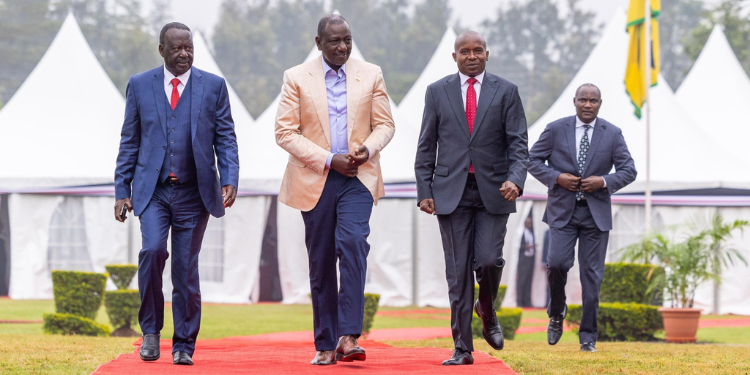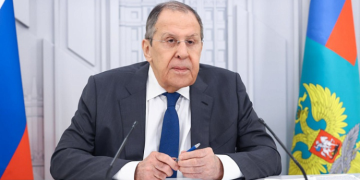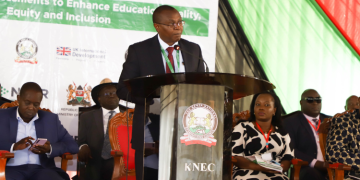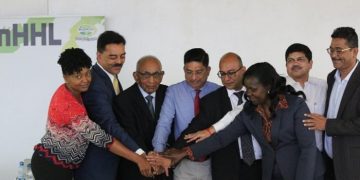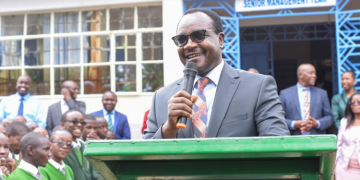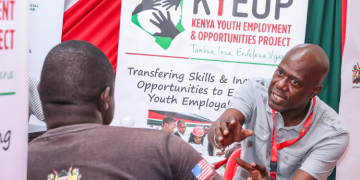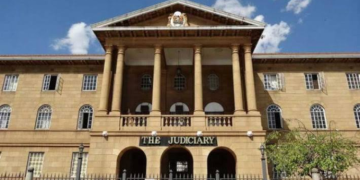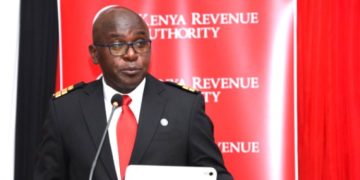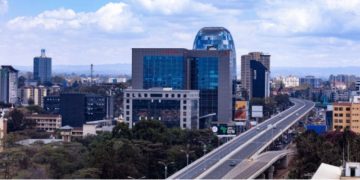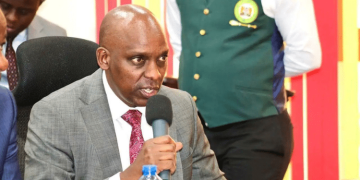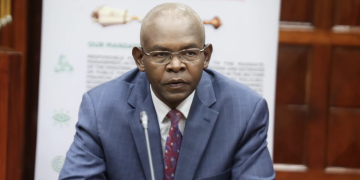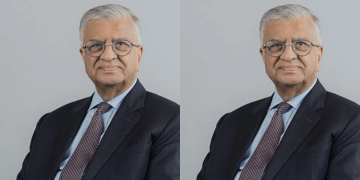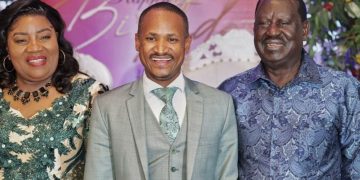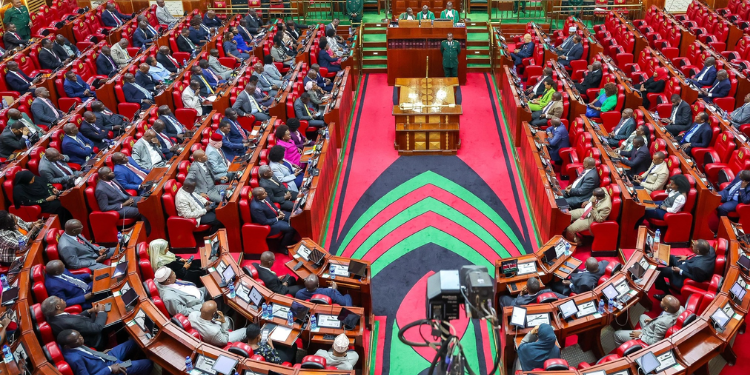National Assembly Justice and Legal Affairs Committee (JLAC) chairperson and Tharaka MP, George Gitonga Murugara, has responded to President William Ruto’s claims that committee members received up to Ksh10 million to pass the Anti-Money Laundering and Combating of Terrorism Financing laws (Amendment) Bill, 2025.
Murugara, while speaking on the floor of the House, denied the allegations, stating that no member received the said amount or was solicited to pass the bill.
“On behalf of the Justice and Legal Affairs Committee, I wish to categorically state that the committee did not solicit and did not receive any inducement of any kind whatsoever from any member or quota in consideration of the anti-money laundering and combating terrorism financing laws bill 2025 as alleged,” he said.
“The Departmental Committee on Justice and Legal Affairs and its members are fully cognizant of the principles of leadership, ethics, and integrity upheld by members of Parliament.”
He also mentioned that the committee condemns and abhors corruption or any practice likely to erode the principles that form the foundation of public trust placed in the House of Parliament by the people of Kenya.
This comes after President Ruto, while chairing the ODM-Kenya Kwanza meeting, asked, “Do you, for example, know that a few members of the House here received up to Ksh10 million to pass the Anti-Money Laundering Bill? Do you know that? Did you get the money?”
Murugara said the Anti-Money Laundering Bill was sponsored by National Assembly Majority Leader Kimani Ichung’wah, and National Assembly Speaker Moses Wetangula directed the committee to consider the bill.
The committee prepared a report on the bill and submitted it to the National Assembly in April 2025.
Also Read: MPs in Committee Accused by Ruto of Taking Ksh10M Bribe (FULL LIST)
JLAC Committee Denies Pocketing Ksh10 Million Bribe as Alleged by Ruto
He added that following its referral by the President regarding the term of office of the Director General of the Financial Reporting Center, the bill was passed by the National Assembly on Tuesday, 3rd June 2025, with amendments fully accommodating the President’s reservations.
Murugara mentioned that having deliberated on the matter and noting that the bill in question was a government bill supported by the House, the committee posed four questions:
-
Which member or members of the National Assembly solicited or received the alleged Ksh10,000,000, or any other inducement, in relation to the consideration and passage of the bill?
-
Who gave the alleged inducement?
-
What was the purpose of the inducement?
-
Have the allegations been reported to the relevant law enforcement agencies?
Murugara Says Committee Acted With Integrity on Anti-Money Laundering Bill
He added, “The committee notes that any inducement related to the bill could only have come from persons opposed to the strengthening of laws against money laundering, terrorism financing, and related offences. Only a person or entity engaged in corruption or corrupt practices, commonly referred to as ‘wash wash,’ could have opposed the passage of the bill.”
The lawmaker opined that the committee’s recommendation for the bill’s passage and its enactment into law, now in force, speaks for itself.
Also Read: Ruto Forms Team to Fight Corruption After Threatening to Arrest Some MPs
Additionally, he emphasized that the position of the committee and its members is that if any member of the National Assembly or any other individual solicited or received any inducement in relation to the consideration and passage of the bill, that member or individual is considered a criminal.
At the same time, Rarieda MP Otiende Amollo who is also a member of the committee claimed that if the passage of the act and its amendments were procured through corruption, such corruption could only have originated from the Executive Office of the President.
“The Executive is the one who wanted the bill to pass, and if that is the case, then three things follow: First, either the President or someone in his office knows who gave the bribe. Second, the President or someone in his office knows who received the bribe. Third, they know why it was given, because obviously it could not have been for the passage of the bill,” said Amollo.
Otiende suggested that the Speaker authorize the Powers and Privileges Committee to summon the President or the Head of Public Service to shed light and provide evidence on the matter.
Follow our WhatsApp Channel and X Account for real-time news updates.
